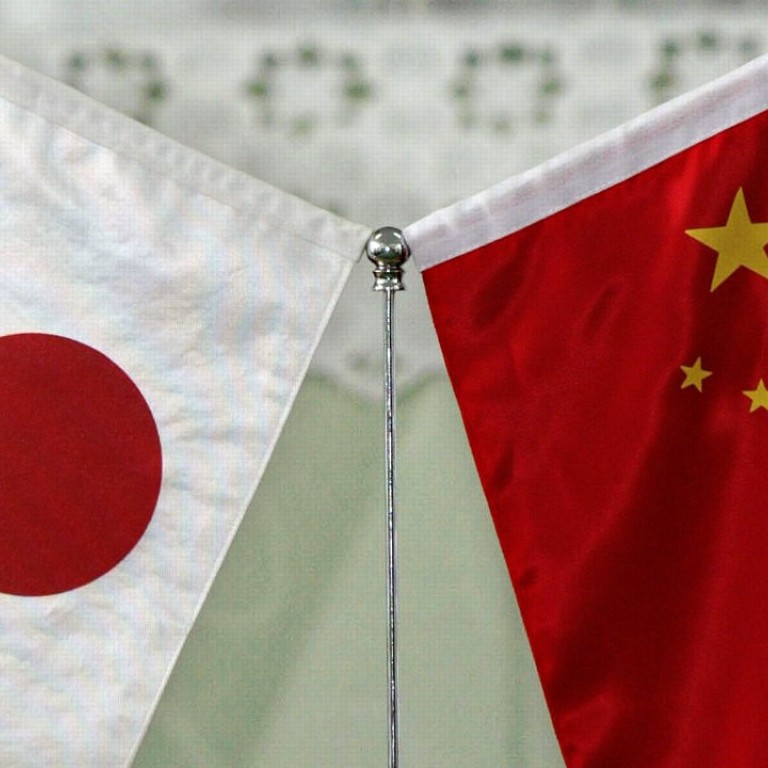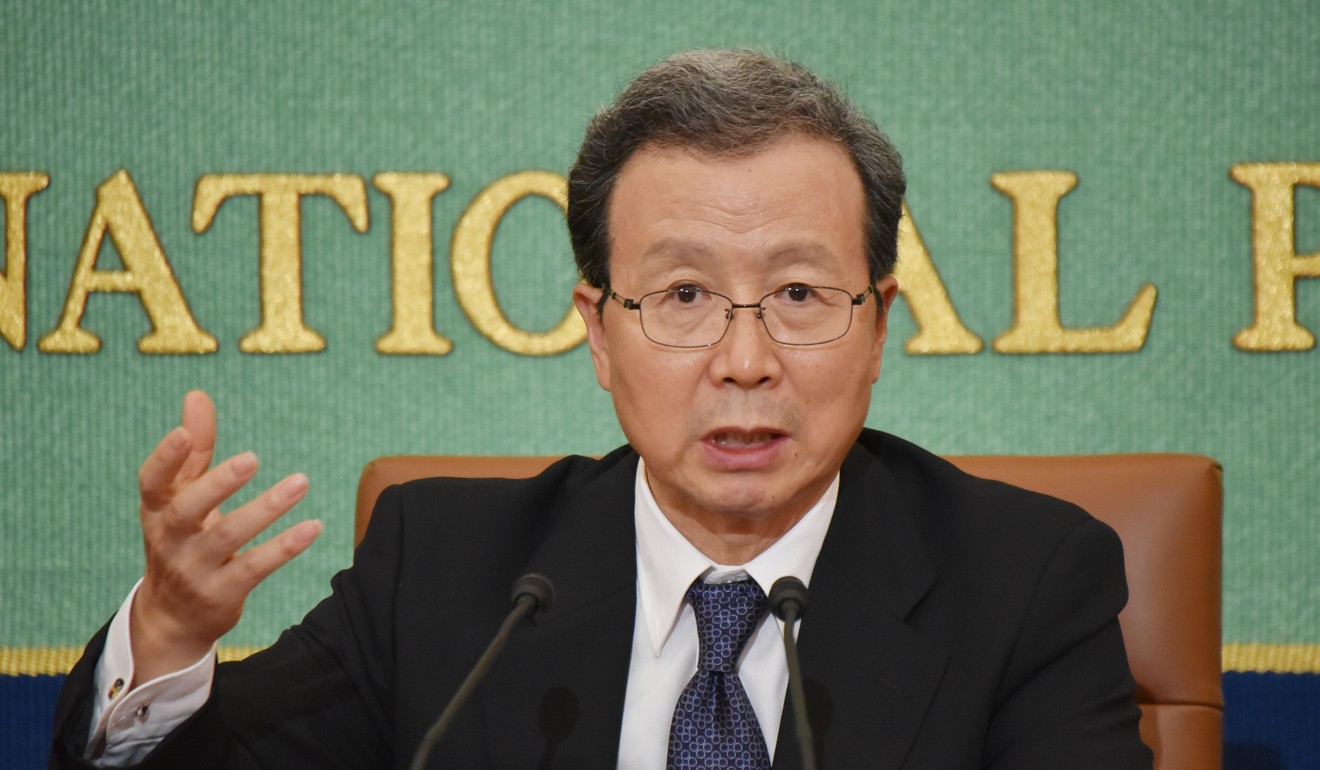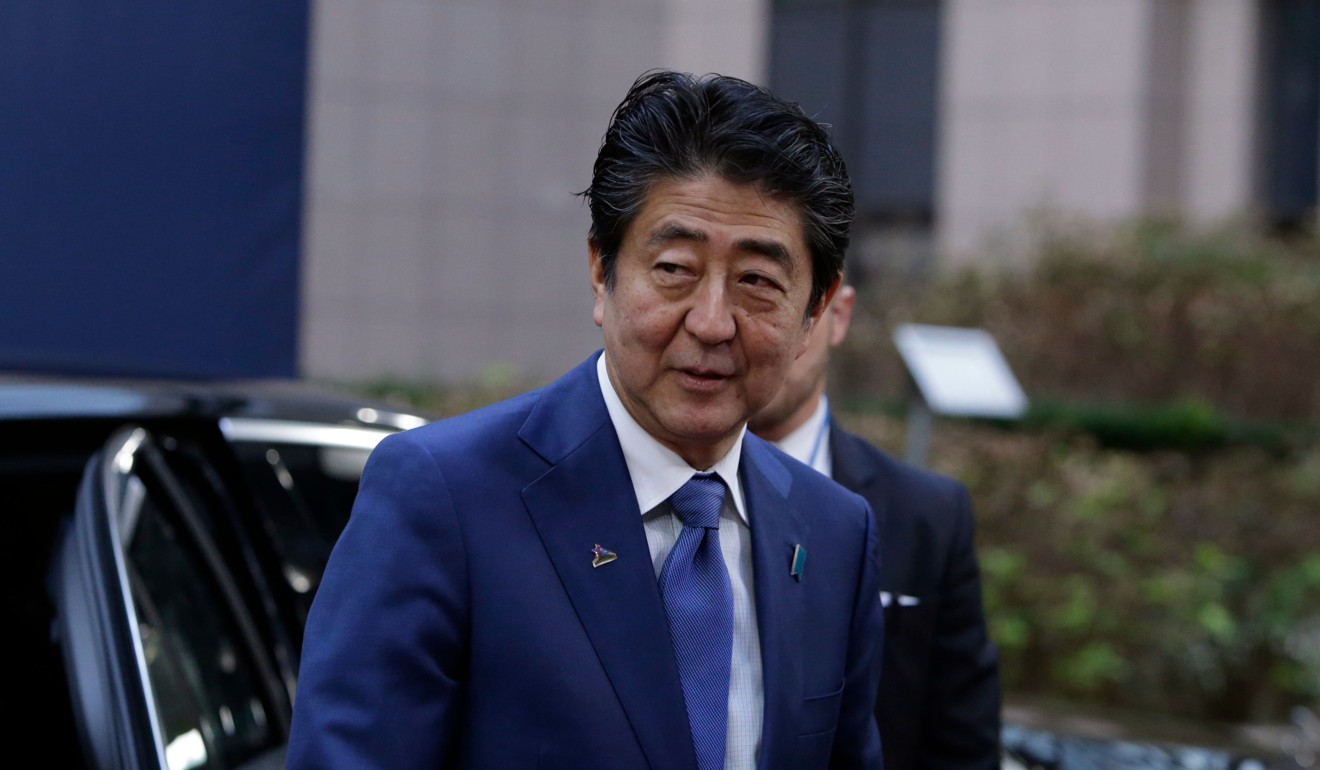
Exclusive | How China plans to use infrastructure projects to build bridges with Japan
- Speaking ahead of Shinzo Abe’s visit to Beijing, the Chinese ambassador to Tokyo says both countries have a responsibility to promote globalisation
China’s ambassador to Japan has said the two nations can improve relations by cooperating on infrastructure projects in third countries.
Cheng Yonghua, speaking to the South China Morning Post ahead of Prime Minister Shinzo Abe’s visit to Beijing later this week, said China and Japan should join forces to promote globalisation as the trade war with the US escalates.
Abe’s visit, which begins on Thursday, will be the first time a Japanese prime minister has visited China for seven years, but comes amid a growing rapprochement between the two sides. Closer cooperation on infrastructure projects will be a key item on the agenda.

The trip will include a forum of more than 1,000 business leaders and government officials, who Cheng said would discuss policy frameworks and key regions and industries where the two sides could cooperate.
The talks will also cover fields such as transport and logistics, energy and environmental protection, industrial upgrades and financing.
“The economies of China and Japan are highly complementary,” Cheng said.
Chinese experts ‘filtered’ trade war advice to Beijing policymakers
“Developing third-party markets will not only benefit the two countries’ economic development, but also boost the prosperity of the region and the world economy.”
Japanese cooperation on infrastructure projects conducted under the Belt and Road Initiative – which Japan prefers to call third-country projects – have already proved to be a key element in the two countries’ rapprochement.
Trade between China and Japan reached US$300 billion in 2017, making China Japan’s second largest trading partner, while Japan is China’s third biggest.

Around 30,000 Japanese firms currently have investments in China, Cheng said, adding that Japanese investment in China has grown to more than US$100 billion.
Both sides have welcomed Abe’s visit as a sign of warmer relations after years of tension over territorial disputes and historical grievances concerning Japan’s actions in the second world war.
Cheng, 64, said relations between the two countries were getting back to normal and urged Japan to join China in promoting globalisation at time when the US is becoming increasingly protectionist under President Donald Trump.
Abe’s China visit to push infrastructure, sea ties to counter US strains
“China and Japan, as the world’s second and third largest economies, are the beneficiaries and defenders of economic globalisation and have a responsibility to push economic globalisation forward,” said Cheng.
“We should not sit idly by and be indifferent to the damage to global trade and the global supply chain,” he continued.
“We should be united in voicing our resolute support for free trade and opposition to protectionism, and to further strengthen bilateral cooperation as well as cooperating at a regional and global level in building an open and inclusive world economy.”
Donald Trump’s administration, which is already deeply embroiled in a trade war with China, has also threatened to slap tariffs on Japan.
Watch: US will ‘suffer more’ in trade war with China, Jack Ma says
Although the Japanese government has agreed to start trade talks with the US, and shares some of its concerns about China’s trade practices, it has also pushed to improve ties with Beijing in the face of the uncertainty caused by America’s growing protectionism.
This includes an effort to resume negotiations on the joint development of oil and gas fields in the disputed East China Sea, which have been suspended since 2010.
Chinese experts ‘filtered’ trade war advice to Beijing policymakers
Cheng said China has not changed its position and has made active efforts to carry on with the implementation of the principled consensus on the East China Sea reached in 2008, which includes an agreement to explore the joint development of natural resources.
“We hope the Japanese side can work towards the same direction as the Chinese side, and take concrete actions to create a favourable environment and conditions for implementing the consensus,” he said.

